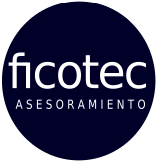The Spanish Tax Agency briefly defines VAT as follows: VAT is a tax of an indirect nature that is levied on consumption and taxes: the supply of goods and services provided by entrepreneurs and professionals, intra-Community acquisitions and imports of goods.
All purchases, except for some exceptions listed in the legislation, must also pay their respective VAT. The companies act as collectors of these taxes for the State. They receive VAT from their customers and pay it into the State’s accounts.
In general the VAT applied in Spain is 21%. But there are some products or services to which the rules allow the application of reduced VAT (10%) and super-reduced VAT (4%).
VAT The reduced rate in Spain is 10% and is applied, to give some examples, in the transport of passengers and their luggage, in the hotel and catering industry, in entrance fees to museums, exhibitions, amateur sporting events and similar, in renovation and repair work carried out on dwellings if a series of conditions are met, in services provided to owners of agricultural, forestry or livestock farms (planting, sowing, grafting, fertilising, cultivation and harvesting, breeding, keeping and fattening animals, etc.), …
The super-reducedVAT (4%) is applied to the following
products or services of basic necessity
. e.g. to Bread, to Books, to Medicines for human use, to Telecare services, home help or day and night centre, …
Certain activities are exempt from VAT: Teaching services, Education of children and young people, Language teaching, Assistance to natural persons by medical professionals and health services, …
VAT is one of the main sources, together with personal income tax, of State revenue.
VAT is not paid in the Canary Islands, which have what they call the Canary Islands General Indirect Tax (IGIC), similar to VAT, but with some differences in its operation and payment.
Generally speaking, businesses that pay VAT have the right to deduct the VAT they have paid from the amount of VAT they have collected and must pass on to the government, thereby minimizing the VAT they pay. The conclusion of this series of transactions is that VAT is a tax that must be paid by the final consumer for the product or service he/she buys.
For SMEs, the calculation of these payments is done on a quarterly basis, where companies and the self-employed must make their accounts of VAT they have paid and the VAT they have received from their sales and must pay the government the difference. Large companies must settle their VAT accounts on a monthly basis.
One problem with VAT that clearly hurts business owners’ accounts is that the State does not take into account the actual payments/collections of businesses, the calculation of VAT payable is based on the date of sales not when these are collected and it is very common for business owners to be obliged to pay amounts to the government that they have not even collected from their customers. In the end it seems that businessmen are financing the state.

